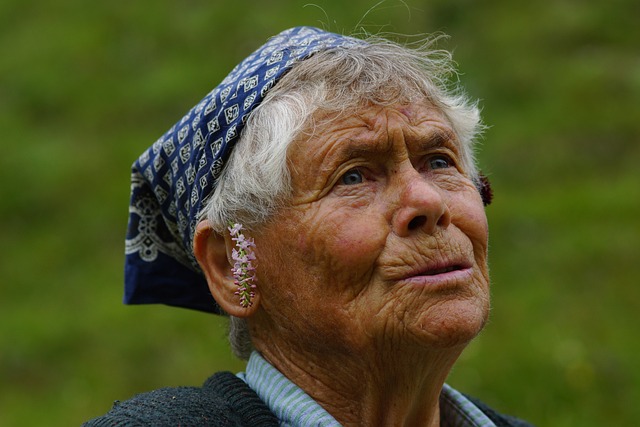Elderly companion services play a vital role in the care of individuals with Alzheimer's disease by offering personalized, compassionate support that adapts to each person's changing needs throughout their disease journey. These services provide consistent, empathetic care that helps maintain quality of life and offers assistance with daily tasks, which is crucial for both the patient and family members. Companions are trained to engage patients in activities that can stimulate cognitive functions and promote emotional well-being, fostering familiarity and a sense of purpose to manage the complex emotional challenges of Alzheimer's. By prioritizing individualized care based on history, preferences, and disease progression, elderly companion services enhance dignity and quality of life for those with Alzheimer's, while also offering respite for caregivers. This holistic approach not only helps in managing symptoms but also enriches the lives of patients through meaningful engagement and empathetic companionship, demonstrating its significant contribution to the healthcare strategy for Alzheimer's in the aging population.
—-
Alzheimer’s disease presents unique challenges for both patients and caregivers, underscored by the necessity for compassionate elderly companion services. This article delves into the intricacies of Alzheimer’s care, emphasizing the transformative role of dedicated companionship in managing this progressive condition. We explore how tailored care plans, crafted through the lens of empathy and understanding, can significantly enhance the quality of life for individuals with Alzheimer’s. By examining strategies employed by elderly companion services, we highlight practical approaches to providing support that respects the dignity and individuality of those affected, fostering a nurturing environment where care is both professional and heartfelt.
—-
- Understanding Alzheimer's Disease and the Role of Compassionate Elderly Companion Services
- The Importance of Tailored Care Plans for Individuals with Alzheimer's
- Strategies for Providing Empathetic Support to Those Affected by Alzheimer's Through Elderly Companion Services
Understanding Alzheimer's Disease and the Role of Compassionate Elderly Companion Services

Alzheimer’s disease is a progressive neurodegenerative disorder that significantly impacts an individual’s cognitive functions and behavior, often leading to memory loss, difficulty in executing daily tasks, and eventual decline in mental and physical capabilities. Understanding this condition is crucial for caregivers and healthcare providers as it allows for the development of tailored strategies that address the evolving needs of those affected. Compassionate elderly companion services play a pivotal role in providing the consistent, empathetic support required to maintain the quality of life for individuals with Alzheimer’s. These services are designed to offer a personalized connection, fostering a sense of familiarity and comfort that can be instrumental in managing the emotional and psychological challenges faced by those living with this disease. The companions are trained to handle the complexities of Alzheimer’s care, ensuring they can assist with activities of daily living while also providing valuable respite for family members and primary caregivers. Through their dedicated attention and understanding approach, these companion services help bridge the gap between the needs of those with Alzheimer’s and the compassionate care that is essential for a comfortable and dignified life.
In addition to the practical aspects of care, elderly companion services enrich the lives of individuals with Alzheimer’s by engaging them in meaningful activities that can stimulate their remaining cognitive functions and improve their overall well-being. These services often tailor activities to the individual’s interests and abilities, creating a nurturing environment where they can experience joy, connection, and a sense of purpose. The role of compassion in these interactions cannot be overstated; it fosters trust and a deep bond between the companion and the person with Alzheimer’s, which is vital for the individual’s emotional health and the success of the caregiving relationship. By integrating empathetic communication and patient-centered care into their daily routines, elderly companion services exemplify the profound impact compassion can have in the lives of those navigating the challenges of Alzheimer’s disease.
The Importance of Tailored Care Plans for Individuals with Alzheimer's

When addressing the complex needs of individuals with Alzheimer’s, tailored care plans are paramount in ensuring their well-being and maintaining their quality of life. These personalized approaches take into account each person’s unique history, preferences, and stage of disease progression, allowing caregivers to provide the most effective support. Elderly companion services play a crucial role in this regard, offering one-on-one attention that adapts as the individual’s abilities and requirements change over time. By focusing on the person rather than the disease, such services aim to foster a nurturing environment where the emotional, social, and physical needs of the individual are addressed with compassion and understanding. This bespoke care model not only aids in managing symptoms but also enriches the lives of those affected by Alzheimer’s through meaningful engagement and consistent, empathetic companionship.
Furthermore, the integration of elderly companion services into the broader healthcare strategy for Alzheimer’s patients is a testament to the evolving understanding that individualized care delivers superior outcomes. These services ensure that caregivers are equipped with the knowledge and skills to provide activities tailored to the person’s past interests and abilities, thereby encouraging cognitive stimulation and emotional connection. The flexibility of these services means that care can be adjusted as needed, providing a responsive framework that supports both the patient and their family throughout the progression of Alzheimer’s. This adaptability is essential in maintaining a sense of continuity and familiarity for the individual with Alzheimer’s, helping to mitigate confusion and distress associated with the condition.
Strategies for Providing Empathetic Support to Those Affected by Alzheimer's Through Elderly Companion Services

Elderly companion services play a pivotal role in offering empathetic support to individuals affected by Alzheimer’s disease, ensuring they receive the compassionate care they need. These services are tailored to meet the unique challenges presented by Alzheimer’s, focusing on maintaining the dignity and quality of life for those living with this progressive condition. Companion providers are trained to engage with patients in meaningful ways, offering a sense of familiarity and comfort through consistent presence and personalized interaction. They assist with daily activities, fostering independence while providing necessary support. This approach not only aids in managing the symptoms of Alzheimer’s but also contributes to a more positive emotional experience for the individual, helping to alleviate feelings of isolation and confusion that often accompany memory loss. By integrating activities that stimulate cognitive function with compassionate companionship, these services help preserve the individual’s sense of self and encourage social interaction, which is crucial for mental well-being. This empathetic support extends beyond the patient to include guidance and respite for caregivers, ensuring they have access to resources and support networks to maintain their own health and well-being.
In conclusion, Alzheimer’s disease presents unique challenges that require a compassionate and tailored approach. The role of elderly companion services in providing personalized care plans is pivotal, offering empathetic support that significantly improves the quality of life for individuals with Alzheimer’s and their families. Through these dedicated services, a nurturing environment becomes possible, one that respects the dignity and individual needs of each person affected by this condition. As we recognize the significance of such care, it becomes clear that elderly companion services stand as a beacon of hope, offering not just assistance but also companionship and understanding in the face of this complex disease.






